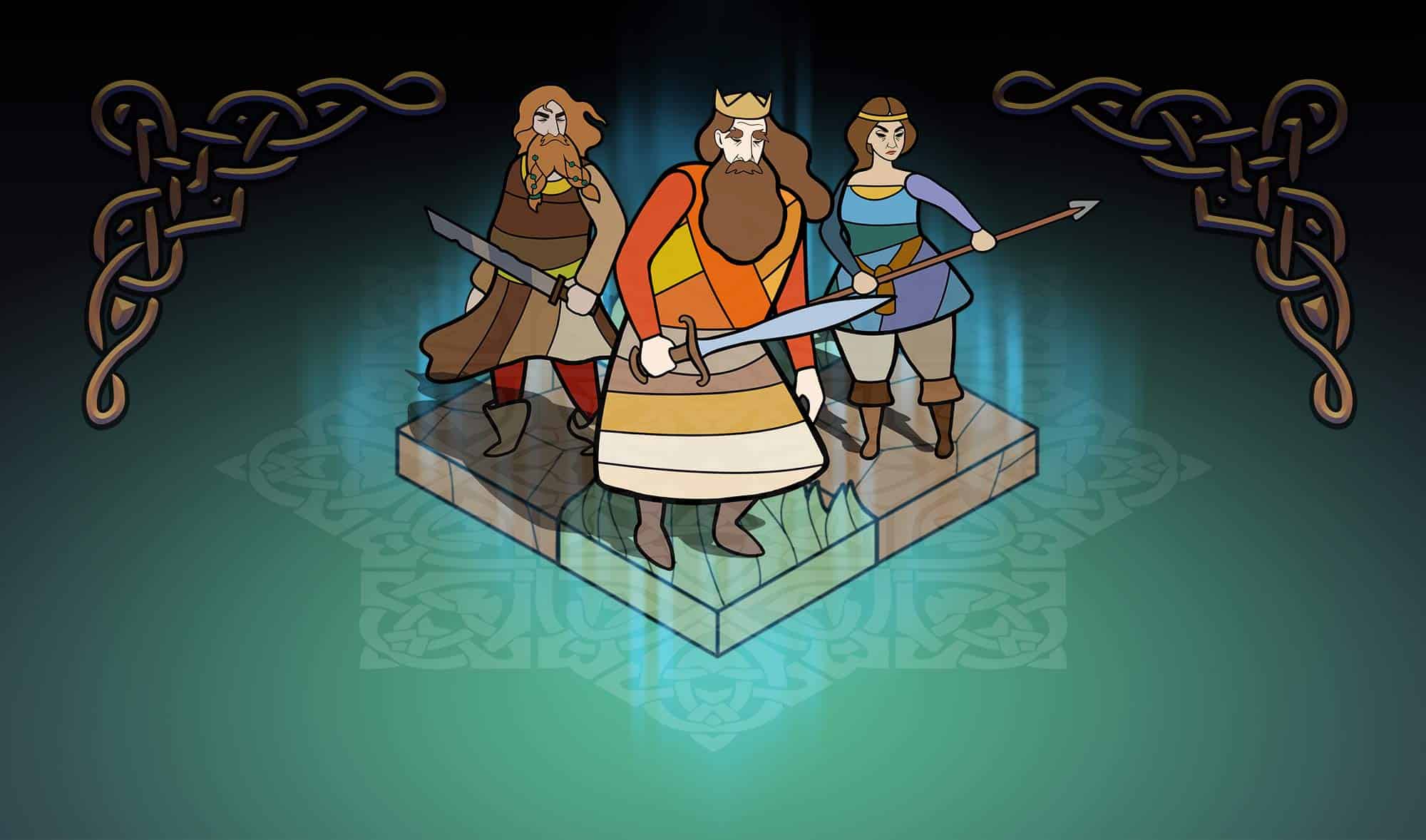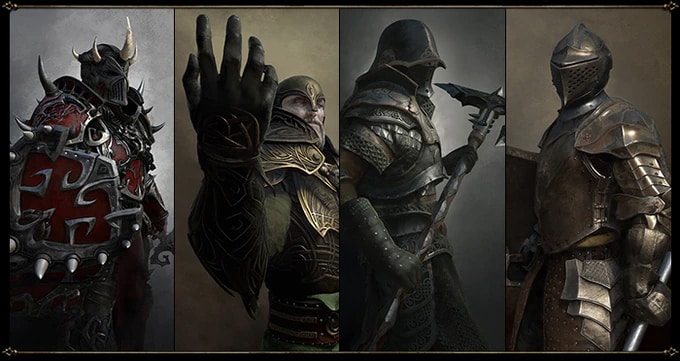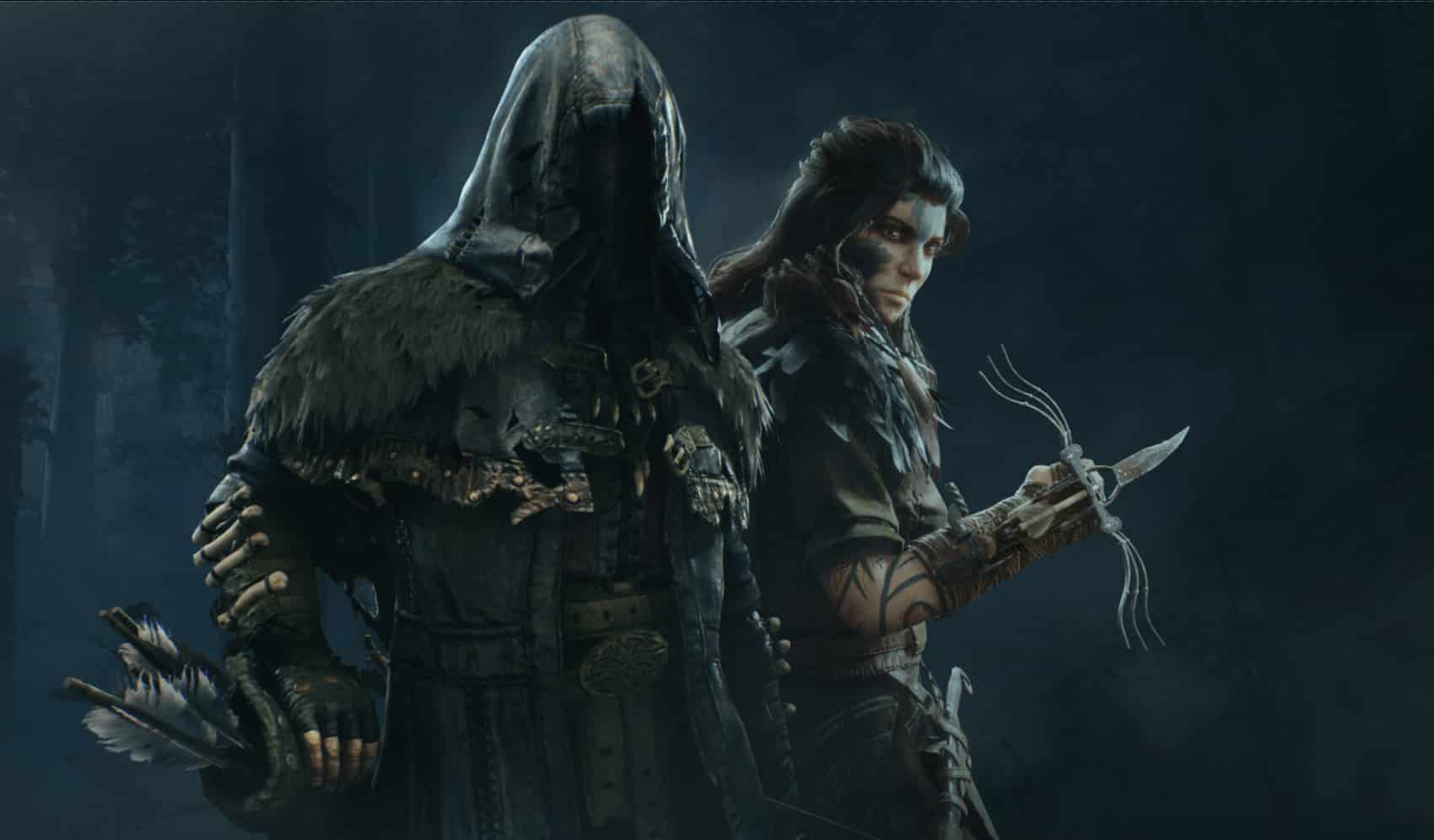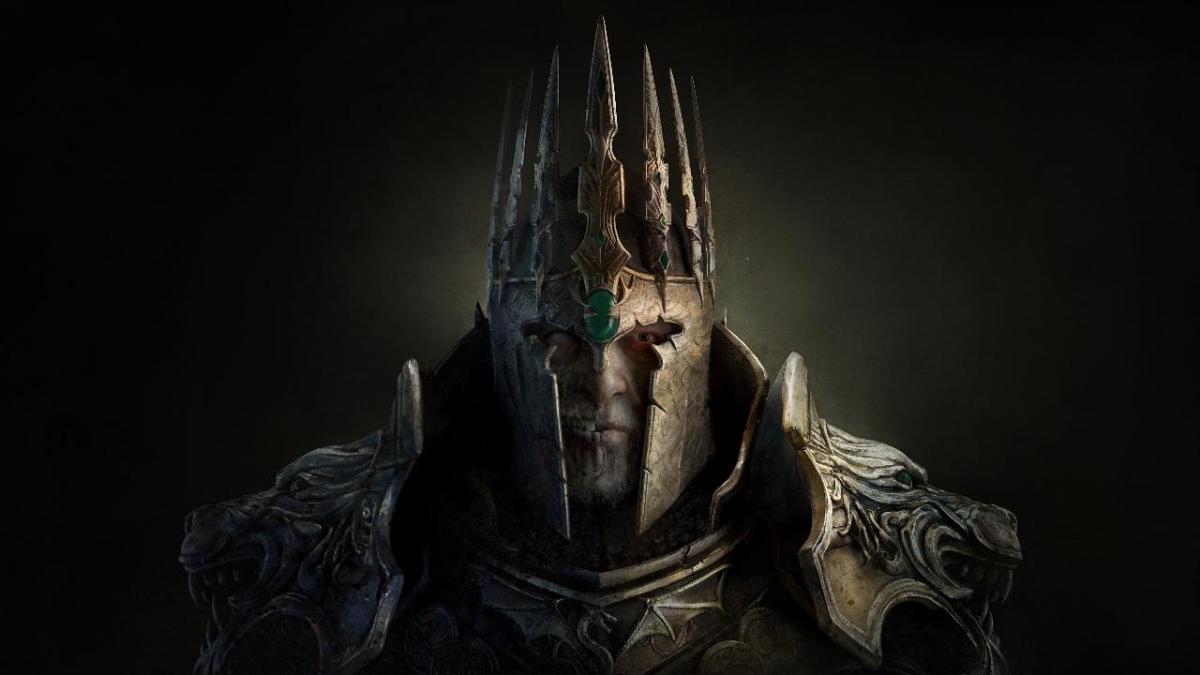We’ve all persevered through the bastardized film version of a beloved book or game. We’ve all seen the countless retellings of old or mythical tales, rearranged and repackaged to offer a different focus or a different mood. Often, those interests collide with contemporary cultural trends (or concerns), resulting in the likes of Warm Bodies (a zombified Romeo & Juliet), Pride and Prejudice and Zombies, or recently a series of female-led franchise reboots including Ghostbusters, Ocean’s Eight, and reportedly Fast & Furious and Pirates of the Caribbean.
In gaming, we’ve seen this manifest in Visceral Games’ hyper-violent take on Dante Alighieri’s Inferno or wildly different interpretations of H.P. Lovecraft’s Cthulhu Mythos. The examples go on, of course, but we’re seeing a kind of mini-trend occurring right now of dark, grim manifestations of mythic Britannia.
The most high-profile example is Assassin’s Creed Valhalla, though its historical trappings and Viking focus push it to the periphery of this discussion. More pertinent are Pendragon, King Arthur: Knight’s Tale (which just wrapped a successful Kickstarter campaign), and Hood: Outlaws & Legends. These games each offer a dark take on the folk tales of hero-king Arthur Pendragon and the trickster Robin Hood.
NeocoreGames describes Knight’s Tale as being “filtered through the dark fantasy tropes,” Hood is “a dark and brutal re-imagining of the Robin Hood legend,” and Pendragon takes place in a dangerous world. They’re grim and heavy, and you get a real sense that the developers are twisting these tales to fit the morbid mood of the world at large.
The legends are not necessarily joyful things, to be fair, and with histories over five hundred years long, they have been reinterpreted and reimagined in almost every way imaginable.

Adaptations are palimpsestuous things. They are created on top of their antecedents, reimagining them or writing back to challenge underlying assumptions and ideologies. The shape of the stories changes with each new telling; thus, in film, Robin Hood moves from Errol Flynn’s romantic spectacle through Disney’s zoomorphic take to Russell Crowe’s crusader/would-be king.
Throughout these and other adaptations, as well as the source legends of Robin Hood and King Arthur, certain themes prevail, among them chivalry and justice both human and divine. They often deal with noble leaders and wholesome vigilantes. Is there any wonder why these tales are front of mind for some creators?
Today’s political landscape almost cries out for these ideas and tropes. But all art exists within the context of its creation, and adaptation is not just a shift between the fundamental languages of storytelling but also a filtering of ideas through differing perspectives. From a contemporary standpoint, our politicians are no King Arthurs, no Robin Hoods.
Leadership in the Anglo sphere right now feels almost dystopian. The Trump years are all but over, but figures like him — Boris Johnson in the U.K., Scott Morrison in Australia — have eroded our collective belief that national leaders are role models. We no longer expect our leaders to be paragons of rectitude, but instead expect them to lie, cheat, steal, and act solely in the preservation of their own power and privilege. We have put on a pedestal the worst impulses of humanity; our leaders reflect our cynicism. The comparative light of Jacinda Ardern and Justin Trudeau feels like cold comfort.

Similarly, Pendragon’s Britannia is a bitter, leaderless land overrun with brigands and wild beasts. Knight’s Tale’s Avalon is a nightmare realm infused with the undying King Arthur’s eternal pain. The world of Hood is under the thrall of an oppressive government. What we know of these worlds reflects a very Classical idea that the fortunes of a nation depend upon the morality of a leader, an idea that we clearly no longer believe in. These settings don’t sound just or chivalrous — they sound like worlds of pain and loss, where innocence is punished and brutality reigns.
The setting of mythic Britannia hammers home the call to relevance. After all, the past is a story we tell, a story that informs our present and our future. The legendary past of these three games predates Britain’s colonialist and imperialist ambitions. They suggest the colonial enterprise was founded amidst brutality and misery and could therefore only ever spread that same poison throughout the world it sought to settle. Fictional though these worlds may be, they reflect upon the modern Anglosphere.
That’s a grim, depressing take.
It’s important to remember, though, that hope springs eternal. Even in the darkest of times, things can be salvaged. With the right choices and the right guiding forces, the future might be better. That was the motivation of Trump supporters in 2016 and of Biden supporters in 2020 alike.

The idea of hope seems to be a part of Knight’s Tale, as the developers describe moral choices that will influence the protagonist’s moral alignment. Mordred doesn’t necessarily have to remain the villainous figure that he is usually portrayed as. Hope is also a central theme of Pendragon. That game’s creative director, Jon Ingold, said as much in an interview earlier this year. Ingold’s assertion bears out in play. You take control of a mythical figure and move across a map, battling enemies, talking with potential allies, amassing a party, telling stories, and ultimately coming to King Arthur’s aid.
The journey is highly randomized, but it’s always about a vision of ancient Britain mired in a fug of despair and a determination to make things right. The victories may be pyrrhic, but that is the nature of democracy, where long-term leadership is hard (and rarely) won.
Stories are how we make sense of the world. Adaptations show us how the world changes over time, adding nuance to those existing stories by letting new voices reimagine and retell them. And games give us the opportunity to tell our own stories within rules and worlds imagined by others.
This trend of mythic games may be small and fleeting, dwarfed by the continued dominance of blockbuster action, but that doesn’t detract from its importance. These stories of perverted leadership and unconquerable hope — filtered through legends that underpin Anglo societies the world over — resonate with overtures of wisdom and truth. These games inspire us to confront things in the real world that bombast usually inspires us to overlook.






Published: Nov 24, 2020 11:00 am